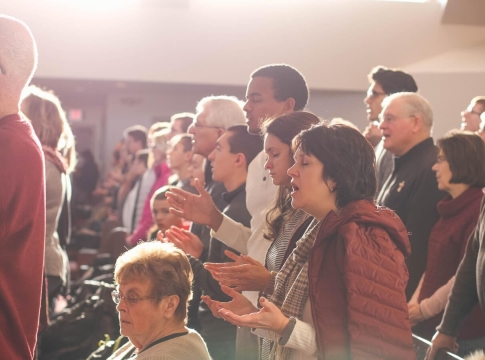
“I do not permit a woman to teach or to exercise authority over a man; rather, she is to remain quiet,” the apostle Paul states in 1 Timothy 2:12.
Firstly, it is important to clarify what this does not imply.
- That does not imply that women cannot be God’s servants. Euodia and Syntyche “labored side by side with me in the Gospel,” according to Paul in the letter to the Philippians (Philippians 4:3).
- That does not imply that a woman cannot impart spiritual knowledge to a man. Acts 18:24–25 tells us that Apollos began preaching, but his understanding of the gospel was unclear. Then it reads, “Priscilla and Aquila took him and explained to him the way of God more accurately when they heard him” (Acts 18:26). It’s interesting to note that Priscilla is named before her husband Aquila in this passage, suggesting that she may have taught Apollos more than her husband.
- That does not imply that a woman cannot speak in a church setting. Paul discusses ladies who pray and prophesy during church in 1 Corinthians 11:5. Paul obviously recognized the contributions made by women to the church and to the ministry based on his writings and actions.
What does 1 Timothy 2:12 mean?
Let’s talk about the meaning of the passage. This indicates that Paul is teaching us here, as he does in 1 Timothy 3, that men should bear primary responsibility for spiritual authority and the proclamation of God’s word. Consequently, pastors and elders shouldn’t be women.
Many churches nowadays disregard this teaching from Paul. Their reasoning is that this was a rule from Paul’s culture, not from God’s plan for all time. However, from the passage it become clear that this reasoning is false. As reason for Paul’s command he gives: “For Adam was formed first, then Eve” (1 Timothy 2:13). So basically he says: there is a difference between men and women that we can see from creation. God created man and gave him responsibility over the garden of Eden. Then God created woman to help him shoulder that responsibility. Men are called to loving leadership, taking initiative and responsibility in their relationships with women, especially with their wife. Women are called to responding to initiative and assist men in their calling.
The normal pattern
Women can lead and take the initiative, as we all know, and oftentimes they must. However, the typical pattern for males to exhibit their divinely bestowed masculinity and womanhood is for men to take the lead, with women following suit and offering support. Ephesians 5:22 states that wives are expected to submit to their husbands in a loving manner. Proverbs 31 makes it clear that this is very different from a life that is boring and uninteresting. There is a description of a woman who honors her husband by leading a very full and active life.
How God created this world
Hence, Paul’s edict that women should not hold positions of pastoral or eldership in the church is not arbitrary or based on cultural norms, but rather on the principles of how God made the universe. Paul goes so far as to say that the marriage bond serves as a metaphor for Christ and the church (Ephesians 5:22–33). The spouse should be prepared to give his life in order to protect his family because he leads and takes responsibility for them. The wife yields to her husband with affection. This is how it ought to be, as marriage ought to serve as a metaphor for Christ—the bridegroom—giving himself up for his church.
Christ as Head
It follows that [God’s family, the church] logically reflects this male headship in the family as well. It permits women to be authentic women and men to be authentic men. All members of the church, male and female, are called to serve God with the spiritual gifts they received from Him, with Christ as Head and spiritually mature men serving as pastors and elders.





